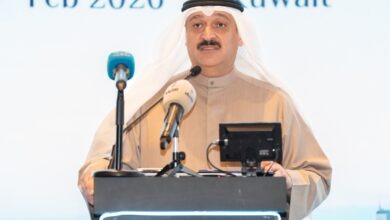Lack of progress in tackling antimicrobial resistance requires new global approach

A new report released ahead of WISH 2024 – the seventh biennial global gathering of healthcare expertise organized by Qatar Foundation’s World Innovation Summit for Health (WISH) – highlights antimicrobial resistance (AMR) as a “global health emergency” and explores a new global approach required to tackle it.
The ‘Tackling Antimicrobial Resistance: How to Keep Antibiotics Working for the Next Century’ report, led by Dame Sally Davies, UK Special Envoy for Antimicrobial Resistance, and Lord Darzi of Denham, Executive Chair of WISH, highlights the need for a focus on tackling AMR given insufficient progress, especially in low-income countries. It reveals a global scorecard that highlights the need for support in low-income countries to end practices adding to antimicrobial resistance.
A global emergency
The first WISH report on tackling AMR, also authored by Dame Sally Davies, was published more than a decade ago, and since then a lot has changed, but not enough and many of the changes that are happening aren’t happening fast enough.
Dame Sally said: “This is a global, multisectoral, intergenerational emergency, which we all have roles in addressing. However, as our analysis of the recommendations in my first report show, there is still a long way to go to truly find a solution to AMR.”
Antimicrobial resistance is now one of the biggest health challenges affecting the world. By 2050, more people could die from AMR than cancer and as we approach the centenary of the discovery of penicillin, it is more evident than ever that action is needed to keep antibiotics working for the next 100 years.
AMR has been established as a priority for action among human health system leaders, as well as animal health, environment, food security and economic chiefs.
Lord Darzi said: “For Alexander Fleming’s discovery of penicillin to be safeguarded for generations to come, we need a multidisciplinary approach that harnesses science, public engagement, behavioural research, policy and regulation. And, while many of the solutions may be shared globally, they must be implemented in a way that is appropriate to the local context.”
A decade of slow progress for low- and high-income countries
The 2013 WISH AMR report made recommendations for actions in five areas: awareness; antibiotic conservation; sanitation, hygiene, infection prevention and control; surveillance and monitoring; and research and development. This report builds on that work by assessing the progress made over the years. By doing so, it reveals the global scorecard, based on a ‘traffic-light’ system which assesses the progress made in the aforementioned areas ranking them from ‘excellent progress’ – green to ‘insufficient progress’ – red. These were then categorised into low- and middle-income countries (LMICs) and high-income countries (HICs). The overall assessment suggests that “some progress has been made since 2013, but not enough” as there are still many ‘ambers’ and ‘reds’ on the list, especially in the LMIC category.
The report highlights the impact on COVID-19 on AMR as it disrupted efforts to tackle the silent and future pandemic of AMR but also brought into focus the need for good hygiene and infection prevention and control. For instance, healthcare facilities, especially hospitals, in the US recorded up to 20 per cent more antimicrobial-resistant infections and corresponding deaths.
In the report, the authors have said that the public needs better understanding of the science and human stories behind AMR. And so, the report details several opportunities for action to curb AMR in several areas, including global citizen engagement, promoting understanding, involvement of the public and professionals, translational science, vaccines and AI with case studies to support each avenue of opportunity.
A set of actionable recommendations
In the report, the authors have provided six recommendations for healthcare policymakers with clear and quantifiable goals laid out for each year to tackle AMR across the world.
The report says: “We will start a countdown to the centenary at WISH 2024. The centenary of penicillin should be used as a moment to take stock on the recommendations set out in this report, and the commitments made at the United Nations General Assembly High-Level Meeting on AMR.”
Several of the policy recommendations, detailed below, are set out to be achieved within the next few years, which makes them promising steps towards tackling AMR.
Recommendation 1: International health organizations should establish a clear and compelling metric to galvanize global and national AMR progress, and an independent body to inform actions (similar to the Intergovernmental Panel on Climate Change (IPCC) and its recommendations on limiting warming to 1.5 degrees).
Recommendation 2: Countries and international bodies should engage their citizens in tackling AMR, with clear plans by 2028.
Recommendation 3: Governments should give more priority to water and sanitation in addressing AMR. This includes increasing investment in Water and Sanitation in Healthcare (WASH) to reduce infections and environmental microbe exposure, and the development of national programs to surveil antibiotic residues, resistance genes and resistant pathogens in the water supply.
Recommendation 4: By 2027, high-income countries should commit to only prescribing antibiotics (with a few defined exceptions) when need is confirmed by a diagnostic test. Low- and middle-income countries should achieve this by 2030.
Recommendation 5: By 2026, all high-income countries should have introduced pull incentives for the development of new antimicrobials, with a clearly defined global antibiotic pipeline.
Recommendation 6: Global health organizations should use the forthcoming centenary of the discovery of penicillin (2028) to accelerate progress on the AMR agenda.
The report authors, Dame Sally Davies and Lord Darzi will talk about this report on the first day of WISH 2024, on 13 November at Qatar National Convention Centre in Doha.
Following WISH 2024, the fourth ministerial meeting on AMR will be held in Saudi Arabia from 15-16 November, at which the recommendations of the new WISH report will be shared by Lord Darzi. This meeting will be closely followed by the WHO’s World AMR Awareness Week starting on 18th November with the theme: Educate. Advocate. Act.












